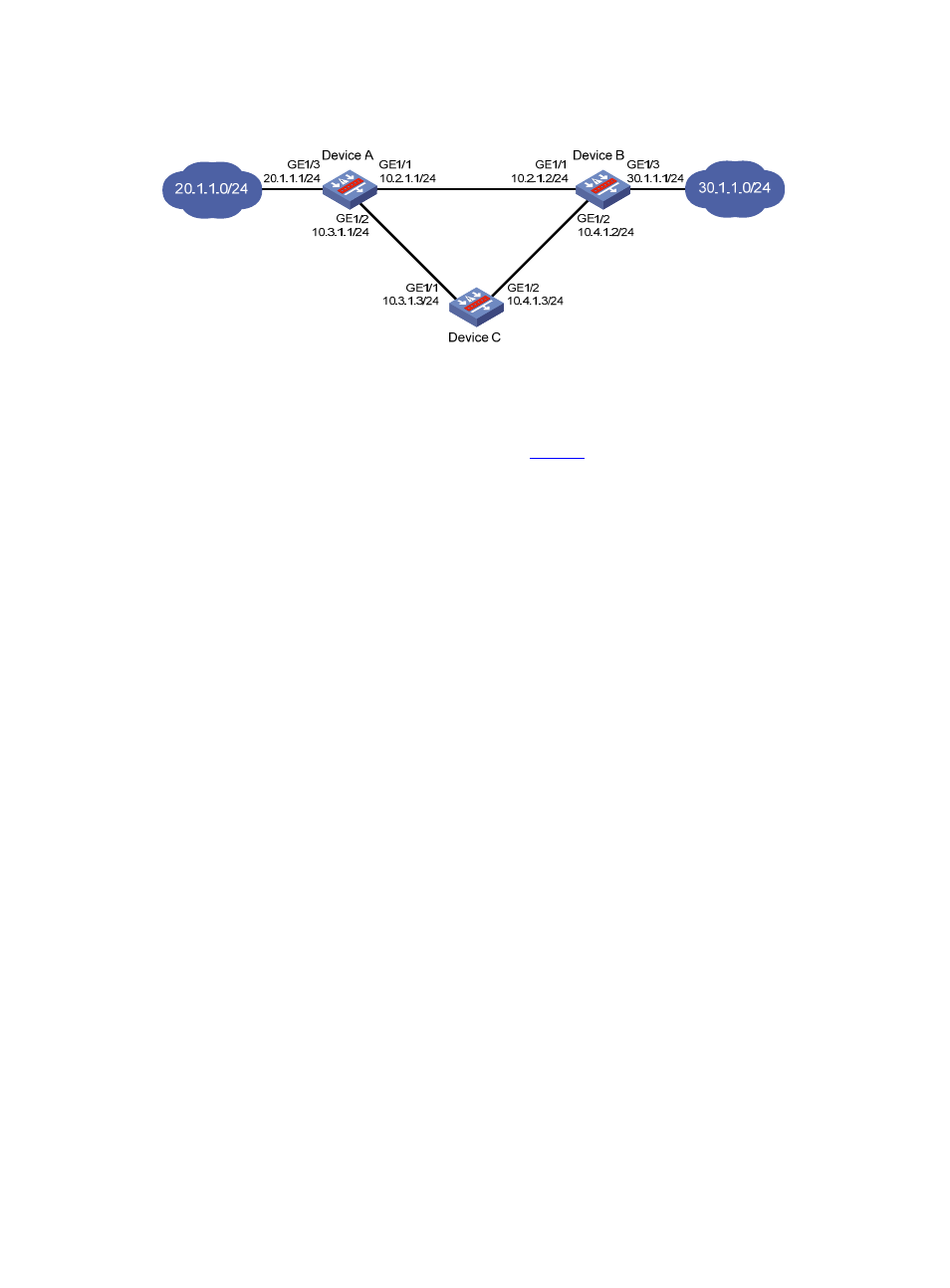Configuration procedure – H3C Technologies H3C SecPath F1000-E User Manual
Page 310

27
Figure 6 Network diagram for static routing-track-BFD collaboration configuration
Configuration procedure
Step1
Configure the IP address of each interface as shown in
. The configuration procedure is omitted.
Step2
Configure Device A.
# Configure a static route to 30.1.1.0/24, with the address of the next hop as 10.2.1.2 and the default
priority 60. This static route is associated with track entry 1.
[DeviceA] ip route-static 30.1.1.0 24 10.2.1.2 track 1
# Configure a static route to 30.1.1.0/24, with the address of the next hop as 10.3.1.3 and the priority
80.
[DeviceA] ip route-static 30.1.1.0 24 10.3.1.3 preference 80
# Configure the source address of BFD echo packets as 10.10.10.10.
[DeviceA] bfd echo-source-ip 10.10.10.10
# Configure track entry 1, and associate it with the BFD session. Check whether Device A can be
interoperated with the next hop of static route: Device B.
[DeviceA] track 1 bfd echo interface gigabitethernet 1/1 remote ip 10.2.1.2 local ip
10.2.1.1
Step3
Configure Device B
# Configure a static route to 20.1.1.0/24, with the address of the next hop as 10.2.1.1 and the default
priority 60. This static route is associated with track entry 1.
[DeviceB] ip route-static 20.1.1.0 24 10.2.1.1 track 1
# Configure a static route to 20.1.1.0/24, with the address of the next hop as 10.4.1.3 and the priority
80.
[DeviceB] ip route-static 20.1.1.0 24 10.4.1.3 preference 80
# Configure the source address of BFD echo packets as 1.1.1.1.
[DeviceB] bfd echo-source-ip 1.1.1.1
# Configure track entry 1 that is associated with the BFD session to check whether Device A can
communicate with the next hop Device B of the static route.
